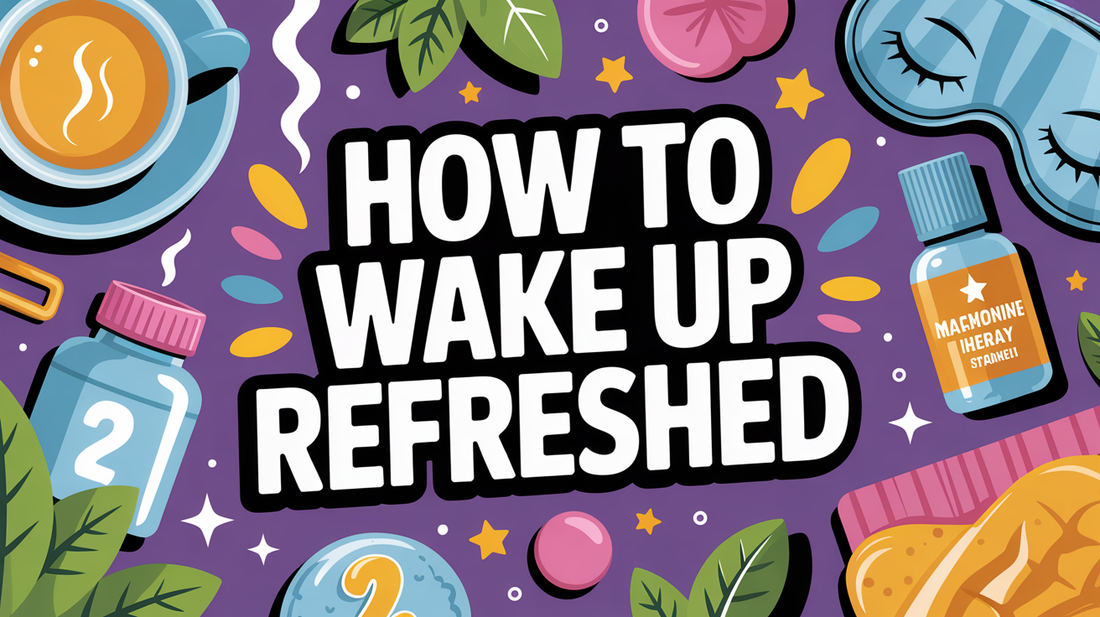How to Fall Asleep Quickly and Wake Up Refreshed: A Natural Alternative to Melatonin
natural alternative to melatonin for sleep, magnesium spray vs melatonin, non-habit forming sleep spray alternative — If sleepless nights are a common occurrence, you may want to consider alternatives to melatonin. This article will explore the benefits of a gentle, natural alternative to melatonin for sleep, focusing on magnesium spray as a soothing option. We will break down the insights into three sections, allowing you to easily incorporate these practices into your evening routine.
Why look beyond melatonin? 🧭
While melatonin has gained popularity as a sleep aid, there are compelling reasons to consider alternatives like magnesium spray. One concern is the potential dependency that can arise from regular melatonin use, which may reduce your body’s natural melatonin production over time. Additionally, some users report side effects such as daytime drowsiness, headaches, and even vivid dreams that can disrupt sleep.
Timing is another critical factor; taking melatonin at the wrong hour may disturb your natural circadian rhythms instead of enhancing sleep. Furthermore, it can interact with various medications, making it unsuitable for everyone. Natural alternatives like magnesium may provide a more holistic approach by addressing underlying causes of sleep disturbances, such as stress or nutrient deficiencies.
- Consider these points when thinking about melatonin:
- Dependency risk can lead to reduced natural melatonin production.
- Side effects may include drowsiness and headaches.
- Melatonin's timing is crucial to avoid disrupting sleep patterns.
- Natural alternatives often address the root causes of sleep issues.
Try It Tonight: Quick Start ✅
- Screen-free + dim lights for 10–15 minutes.
- Gentle stretch or slow breathing (4–7–8).
- Apply Magnesium Spray as directed (e.g., 4–8 sprays on legs/arms/shoulders 10–20 minutes before bed). Patch-test if new to topicals.
Magnesium Spray vs Melatonin ✨
When comparing magnesium spray and melatonin, it’s essential to understand their distinct mechanisms. Magnesium works to regulate neurotransmitters and activate the calming parasympathetic nervous system, while melatonin primarily influences your circadian rhythms. For many, magnesium deficiency—which affects a significant portion of adults—can lead to sleep disturbances, making magnesium spray a proactive solution.
Topical magnesium spray offers the advantage of faster absorption compared to oral supplements, helping to bypass digestive issues. Moreover, magnesium does not generally leave you feeling groggy the next day, unlike some melatonin users. By applying it to areas of muscle tension, you can enjoy both relaxation and sleep support, making it a versatile addition to your nighttime routine.
- Key takeaways include:
- Magnesium regulates neurotransmitters, while melatonin affects circadian rhythms.
- Deficiency in magnesium is common and can cause sleep issues.
- Topical application provides quicker relief and avoids digestive discomfort.
- Less risk of next-day drowsiness with magnesium compared to melatonin.
Why We Recommend a Gentle Helper 🌿
Magnesium Spray offers a quick-absorbing formula with a soothing, non-sticky feel, perfect for creating a calming bedtime ritual. It may support your journey to a natural alternative to melatonin for sleep, allowing for relaxation without the worries of dependency.
- Quick-absorbing comfort—no heavy residue.
- Gentle feel designed to minimize irritation.
- Clean, bedtime-friendly scent enhances relaxation.
A Non-Habit Forming Sleep Ritual (magnesium spray) 🔍
Creating a sustainable sleep routine with magnesium spray can yield long-term benefits while alleviating concerns about dependency. For optimal results, apply the spray 30-60 minutes before bedtime, allowing your body to absorb the magnesium effectively. You can start with a small amount on areas that feel tense, such as your legs or neck, and gradually build from there.
Incorporating magnesium spray into a consistent evening ritual—like reading a book or practicing gentle stretches—can help signal to your body that it's time to wind down. This method not only promotes relaxation but also supports your body’s natural mechanisms for sleep, avoiding the pitfalls of synthetic sleep aids.
- Consider these tips for a relaxing bedtime routine:
- Apply magnesium spray 30-60 minutes before bed for best results.
- Combine application with calming activities like reading or stretching.
- Focus on areas of tension for targeted relief.
- Maintain a consistent sleep environment to enhance relaxation.

